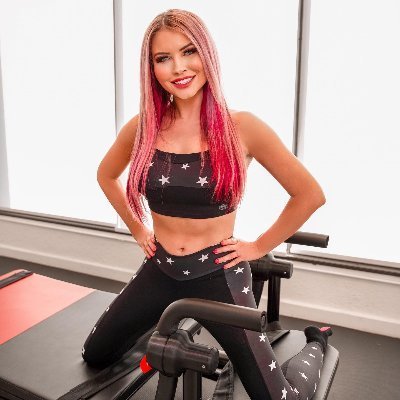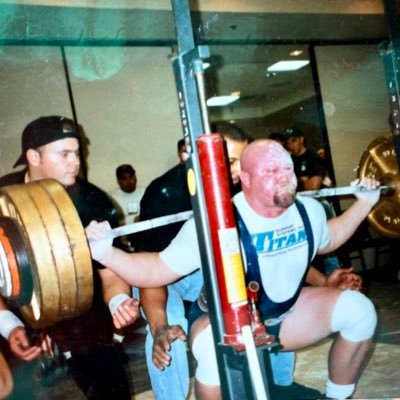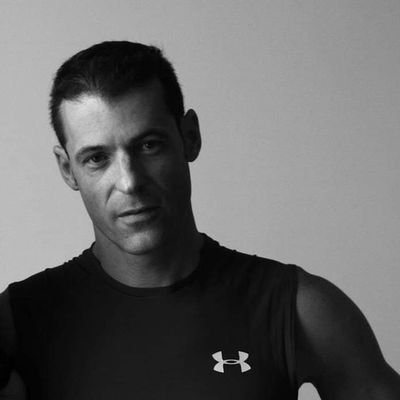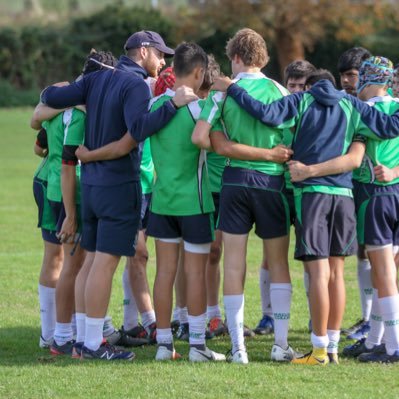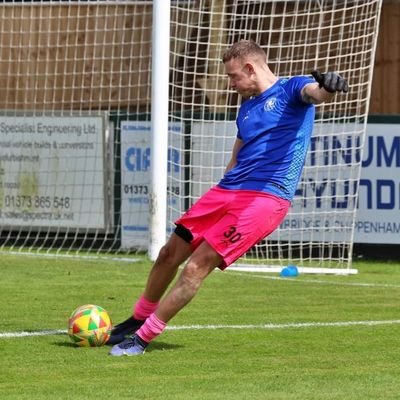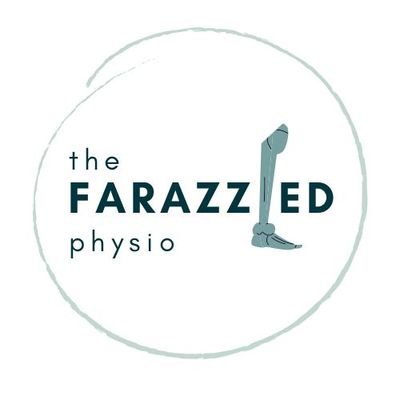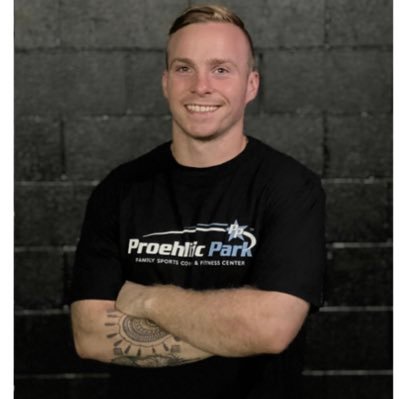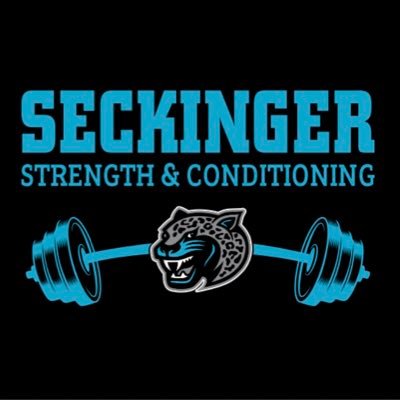
Justin Mok
@JustinMok05MSc Strength and Conditioning/ Assistant Strength & Conditioning Coach @ Cardiff Met University (Internship) https://t.co/Se9PdMIhdI
Similar User

@coachbsweeney

@cnkgzk

@CoachGchino

@Moose_N_Goose

@murray7890

@SKG_Strength
Reactive Strength Index Performance thresholds for MALE athletes Jump Ht / Contact time 10-5 RJT method (Harper) & equivalent tests

More on extensive vs intensive training here 👇 x.com/EamonnFlanagan…
Extensive 🆚 intensive plyometrics. When should you use one or the other? Why do they fit in different phases of plyometric development? Join @EamonnFlanagan to get these answers and much, much more! sportsmith.co/courses/
Depth jumps and Drop jump defining characteristics

What type of strength training best impacts middle or long distance running performance? New meta-analysis: The Effects of Strength Training Methods on Middle and Long Distance Running Performance 📈38 included studies; 900 middle or long distance runners 💪Strength training…


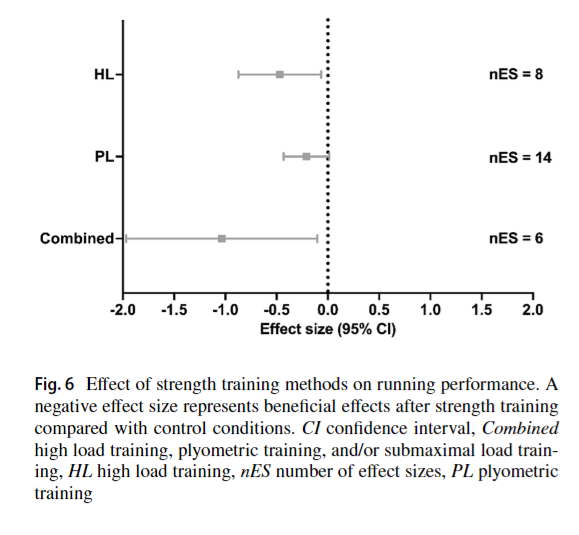
Recreating some short lecture videos for UG research methods based off @jonaslindeloev great resource (lindeloev.github.io/tests-as-linea…) to tie in with the study designs they can choose for proposals, and also to demo in @JASPStats which they use (teaching some R but not for this module).
A muscle with a pennation angle of 0 degrees transmits 100% of its contractile force through the tendon, whereas the same muscle with a pennation angle of 30 degrees transmits 86% of its force through the tendon. Most human muscles have pennation angles that range 0 to 30 degrees

Eccentric Strength and the Reactive Strength Index are significantly correlated with running economy in distance runners 🔸 28 athletes (5k, 10k, marathon) 🔸 Running economy assessed @ 12 / 14 ' 16 km/h 🔸 Strength: 1RM Squat, Ecc-Con peak force 🔸 CMJ, DJ-RSI 🔸 Leg stiffness…

You spend much time warming your athletes up rather than just ticking a box on making them sweaty. Learn how Scott Kuehn systemizes and progresses his warm-ups to address a variety of athletic qualities and competencies 👉 tinyurl.com/ygy2vzb3 #WarmUp

We have been working long and hard to create something new and cool for you guys. It’s the best biomechanics course we have ever made. Put a running man 🏃🏽♂️in the caption for a chance to WIN a free preview to the course! Everyone can get faster, We can show you how!
"The Primer" Gameday lifting for enhanced performance Getting an edge on gameday is what every team and athlete aims to achieve and the gameday primer can be a powerful addition to a sports performance program to help achieve this. Programming principles: Participating…

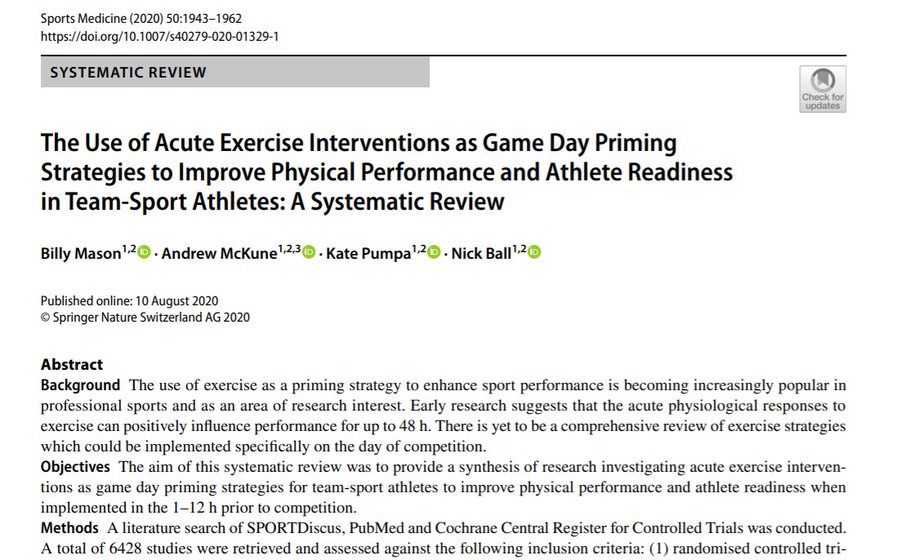
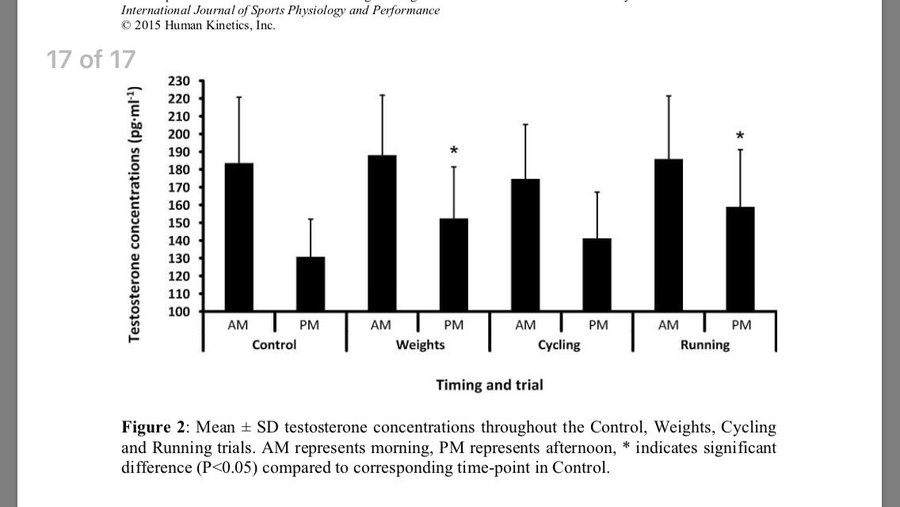
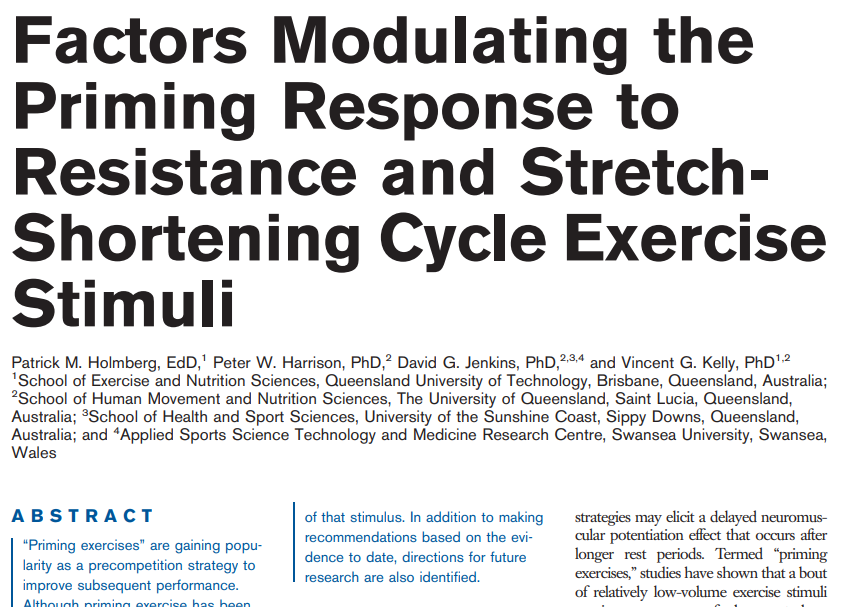
Plyometrics: What can we learn from masters of the craft? Here's what I've learned from the themes and commonalities between the world's experts on high powered plyometric training. Plyometric experts all have strong clarity and give deep thought to the following: 🔸Their…

Kelvin Kiptum must be super-resilient on top of everything else: physoc.onlinelibrary.wiley.com/doi/10.1113/JP…
🏋️♂️🤯 Beware the 'Blender Effect' in training! When we target too many factors at once, we risk: unsequenced training, missed phase potentiation, excessive workloads, overtraining, and injury. Let's aim for smarter, not harder! 💪🔑 #TrainingInsights #SmartTraining
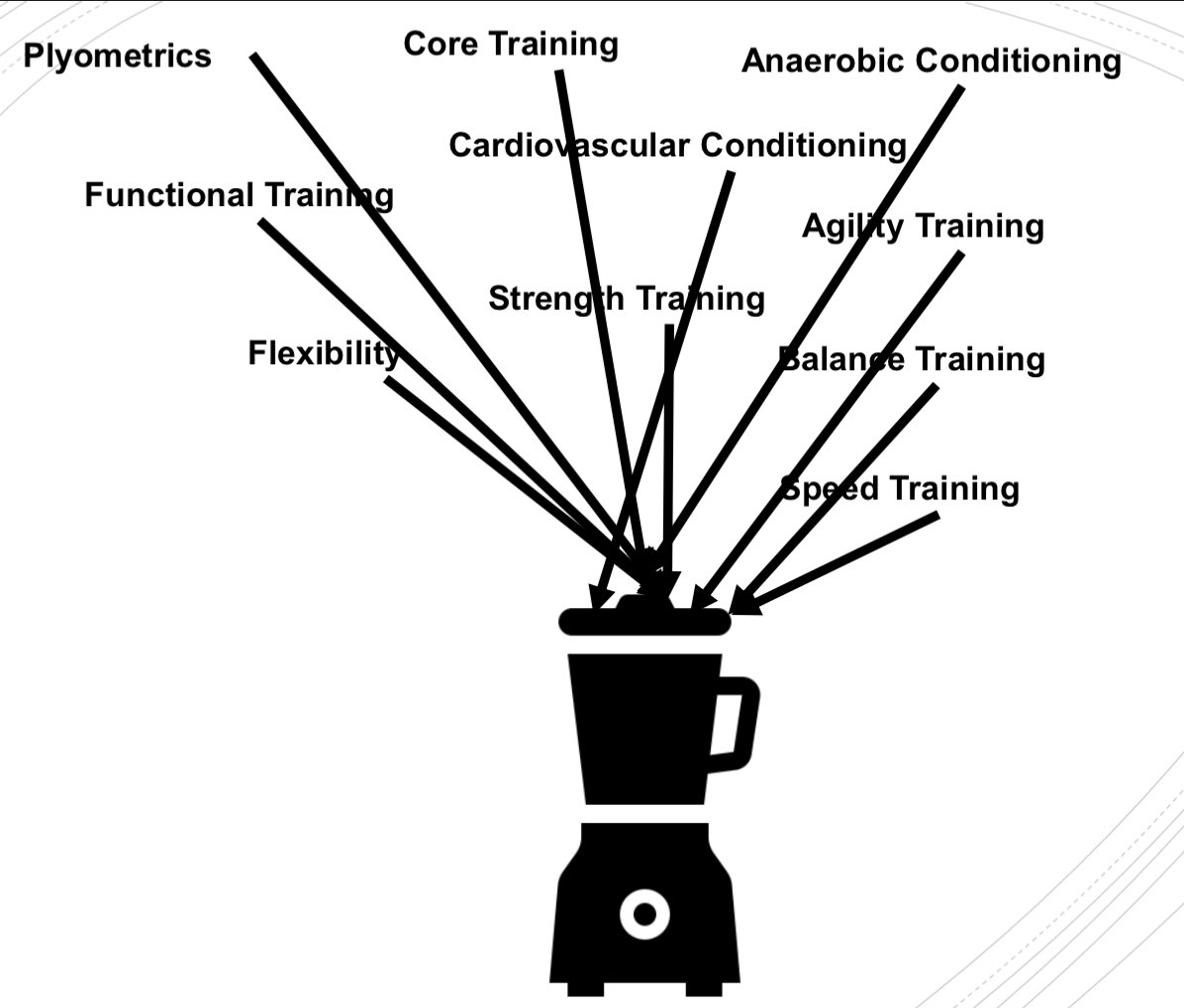
Making the complex simple, great paper to help you develop a framework for your S&C programs. The 5 Key Strengths 🔹 Maximal Isometric Strength 🔹 Explosive Strength 🔹 Heavy Maximal Dynamic Strength 🔹 Fast Maximal Dynamic Strength 🔹 Reactive Strength

Do you REALLY need to test 1RM to prescribe strength training? How can you establish 1RM without directly testing it? Find out in the following article 👉 tinyurl.com/yatrtltu #Establishing1RMs

🚨NEW PAPER🚨 Sprint mechanics and hamstring strain ⚖️ Why? What? How? Anatomy, biomechanics, experimental data discussed by @chrisbramah &al @SportsMedicineJ Not a "waste of clinical time" IMO 📄link.springer.com/article/10.100… Framework for intervention✅see👇 researchgate.net/publication/35…


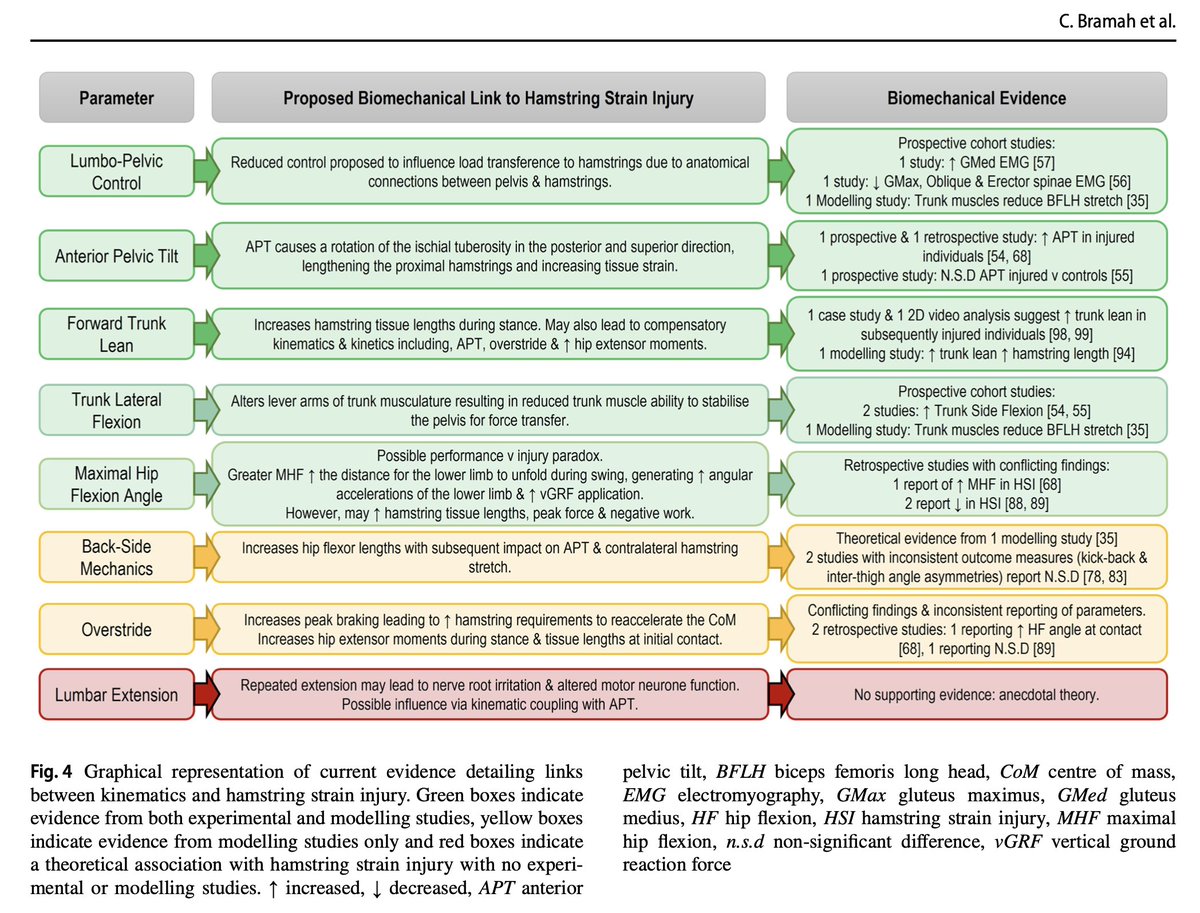
Check out "On the Limits of High-Performance Support" published ahead of print in @NSCASCJonline by @DrJohnPWagle @aaronjcunanan @DrMattSams & @AustinRDriggers! journals.lww.com/nsca-scj/fullt… This will be a part of the Sport Science Special Issue that will come out in February! @NSCA
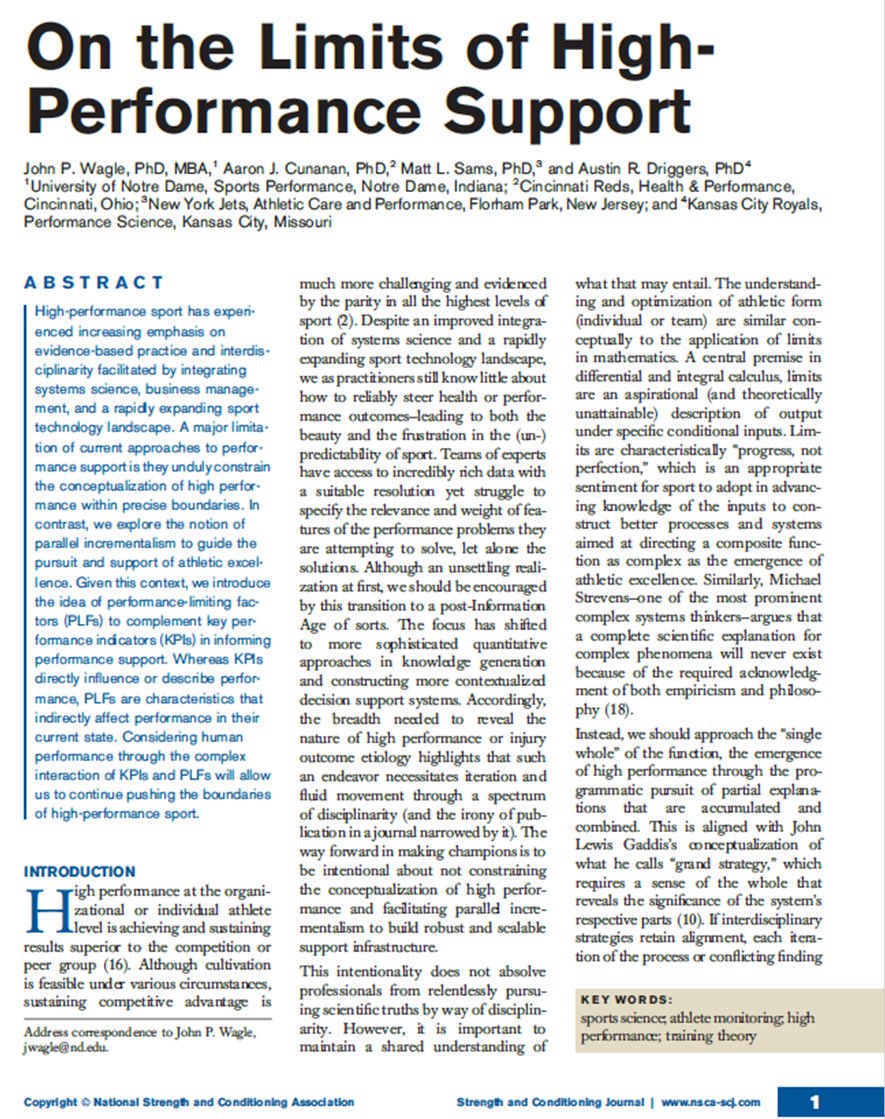
Are low-level, extensive plyometrics enough to drive meaningful adaptation? Are they even plyometrics? Does it matter? Here's my plyometric progression model 👇 I'm not convinced work in phase 1&2 "prep tendons" or create specific significant adaptation at the tendon - but…

🔥off the press! Check out our latest “Applying Sport Scientist Roles Within Organizations”: journals.lww.com/nsca-scj/fullt… @EricMcMahonCSCS @Clivesportsandc @sportscienceed
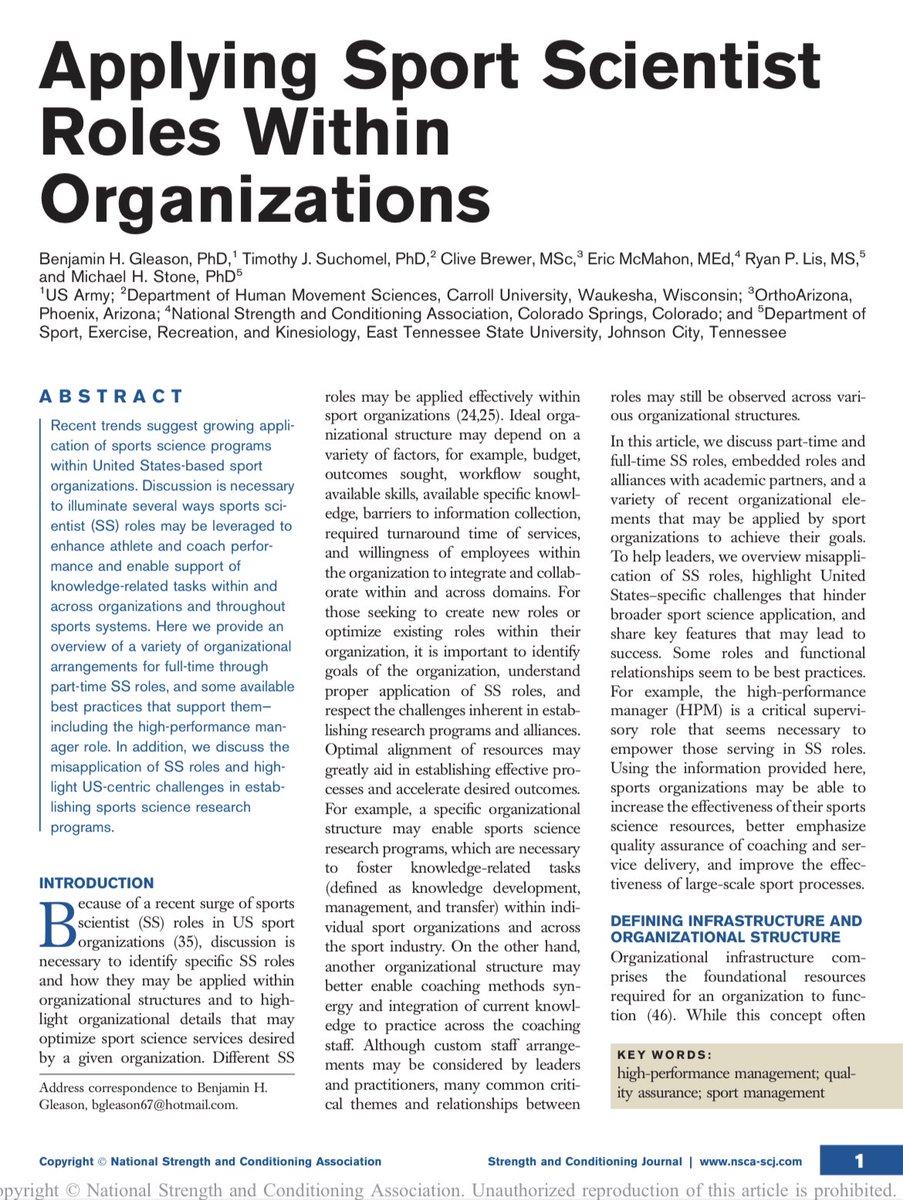
United States Trends
- 1. CASSANDRA 24,6 B posts
- 2. #SmackDown 91,4 B posts
- 3. CM Punk 23,9 B posts
- 4. Paul Heyman 10,2 B posts
- 5. Khalid 28,8 B posts
- 6. #OPLive 3.538 posts
- 7. #TorontoTSTheErasTour 53,2 B posts
- 8. I DID SOMETHING BAD 13,4 B posts
- 9. Jared McCain 14,1 B posts
- 10. Chaz Lanier 1.768 posts
- 11. Creighton 5.106 posts
- 12. IDSB 3.559 posts
- 13. #BlueBloods 2.735 posts
- 14. Bayley 5.055 posts
- 15. Kendrick 851 B posts
- 16. Bianca 17,7 B posts
- 17. MSNBC 288 B posts
- 18. #AEWRampage 3.811 posts
- 19. Caleb Love N/A
- 20. Baylor 5.667 posts
Something went wrong.
Something went wrong.
























